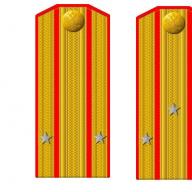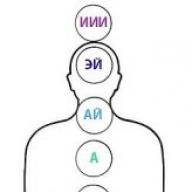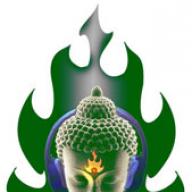Margarita Mamun is one of the most talented young rhythmic gymnasts in Russia, she is a member of the national team and has the title of MSMK. Born on November 1, 1995 in Moscow. Margarita is half Russian, half Bengali. Her father is from Bangladesh. It is the eastern roots that explain Mamun’s incredible expressiveness, lyricism and plasticity.
At the age of seven, Rita began going to the gymnastics section, where her mother brought her. Fortunately, the Olympic Village is located not far from her home. She consciously began preparing for a career as a gymnast at the age of eleven. She trains under the guidance of coach Amina Zaripova. At the Sports and Youth Sports School she trained under the guidance of Natalya Valentinovna Kukushkina. In the national team, Mamun’s mentor is Irina Aleksandrovna Viner-Usmanova.
In 2005, as part of Karolina Sevastyanova’s team, she took part in the Miss Valentine Cup, held in the Estonian city of Tartu. For a short time, Margarita took part in competitions for the Bangladesh team, but soon made the final decision to compete for Russia.
Mamun achieved her first great success in 2011, when she became the Russian champion in exercises with clubs, ball and hoop. Margarita also became the Russian champion in all-around.
Margarita began to be involved in training with the national team in Novogorsk. In the same year, she was sent to compete in Montreal, where the World Cup took place. Mamun, with a score of 106.925 points, took third place in the all-around and climbed to the senior podium for the first time in her career. In exercises with the ball, Rita scored 27.025 points and took first place.
In 2012, at the World Cup in Kyiv, Mamun won three bronze medals: in exercises with ribbon, ball and clubs. In the same year, Margarita became the absolute champion of Russia, repeating her last year’s success a year later. At the competition in Tashkent, Rita was one step away from the podium, scoring 113.200 points in the sum of all exercises and taking 4th place.
In 2013, Mamun became the champion of Russia for the third time. She opened the season with gold in the all-around at the Moscow Grand Prix. She took the first step of the podium in exercises with clubs, ball and hoop, and in exercises with ribbon Mamun took third place.
At the Thai Grand Prix, Margarita won all possible gold medals: in exercises with ribbon, ball, clubs, hoop and all-around. Rita completed her performances at the second stage of the World Cup in Lisbon in an identical manner.
Soon Mamun took part in her first European Championship, which took place in Vienna. As part of her team, together with Daria Svatkovskaya and Yana Kudryavtseva, she won gold medals. In the individual competition, she took first place in exercises with a ribbon and came second three times in exercises with clubs, a hoop and a ball.
In July 2013, at the Universiade in Kazan, Margarita won 2 golds. First, Mamun became the champion in the individual all-around, scoring a total of 73.466 points. A day later, Margarita, with a score of 18,300 points, became first in hoop exercises
The Olympic champion of Rio in the individual championship visited St. Petersburg at the Sports and Youth Sports School "Zhemchuzhina" and performed in front of young gymnasts
Sergei ZIMMERMAN
from Saint-Petersburg
Margarita answered the questions of the young athletes, received a sea of flowers and congratulations from them, and the government of St. Petersburg and CSKA also congratulated the Olympic champion. There were a huge number of posters and banners in the stands, including "Rio Rita".
WIENER SAID: "HOW DID YOU FALL BEAUTIFULLY"
- What did you like most about Rio?
The atmosphere that worked well there. But I still haven’t realized that I became an Olympic champion. This will probably come with time. But it’s good that everything worked out for me in Rio.
- How do you cope with your fears and worries?
This comes with experience. For example, in Rio I was not afraid to perform, although at first I thought it would be scary. The main thing was to focus completely on yourself and the subject. During my first appearance on the carpet I was worried, and then less and less. In general, those who are sick and those who perform are two different things. There is incredible excitement in the stands. We need to tell ourselves that these are ordinary competitions. Then everything will be fine.
-What is your favorite subject?
All. And then you can’t mark just one. The rest will be offended, become jealous and stop listening to me.
- Has your life changed after Rio?
So much attention now! But I myself have not changed.
- What does a personal trainer tell you if you are wrong?
She tries to support me. He says: “Calm down, forget about it.”

- How did you react to your victory?
When I called her, she immediately congratulated her and said: “How beautifully you fell at the end.” She was happy.
- What is the most difficult thing in your career?
Overcome yourself and don’t give up when you’re in a bad mood, when you don’t get enough sleep, when your coach scolds you.
- What was the most difficult subject in Rio?
All. Although it seemed that the main problems would arise with the tape, because in Rio it was wet, hot and the air conditioners were blowing. Although Irina Alexandrovna should not hear this - in principle, this cannot be said in front of her.
- Do you have superstitions?
They used to be. If you performed successfully, you need to put on the same slippers as yesterday and walk in the same place. Now there is no such thing. Everything depends not on traditions, but on how you work.

Today. Saint Petersburg. Margarita MAMUN at a meeting with young athletes. Photo by Sergey ZIMMERMAN, "SE"

THE PARALYMPIANS WERE TREATED DISCOUNTLY
- Will you stay in sports until the Tokyo Games?
Four years is a very long time. I won’t guess for now.
- It seems like you're a little embarrassed?
This is the first meeting after Rio at my school, I’m surprised that the reception is so fantastic. Thank you all very much. I am very happy. To be honest, I’m not used to such attention.
- Is the medal in Rio difficult?
I’m holding it now and I feel that the work of a huge number of people has been invested in it. Personal trainer, head coach, our entire team: directors, doctors, choreographers. I have a large personal team. I am very grateful to her.
- What do you want most now?
In the last days - relax, be with your family. But I understand that I will still have time.
- What moment of the Olympics would you call the most difficult?
Probably a month before the Games. It was the most stressful training camp I've ever had. Training, training... There I realized that the Olympics are a very special competition. We prepared in such a way that it was impossible to find fault with a single step or a single detail.

- Could you imagine at that moment that you wouldn’t go to Rio?
We were worried about this, of course. We followed all the news. I can’t even imagine if they treated us the same way as they do now with the Paralympians. We went, but they didn’t. This is ugly and inhumane.
- Is friendship possible in your sport?
We don't run or swim side by side - we go out onto the mat and compete with ourselves. I did everything I could, but such a loss happened. But the fact that Yana became second, and I became first, did not affect our friendship in any way.
- Did you allow yourself to relax at least somehow after the Games?
I didn’t allow myself anything like that, and I don’t want to, to be honest. I continue to adhere to the regime. I’m just trying to sleep more now, but it’s not working very well. And then, we can’t go more than ten days without training, and they’re just about to expire.
- You are a student at the Lesgaft Academy in St. Petersburg. Can you say you passed the summer session?
It is a great honor to represent this university. In general, it’s the fourth year. We have already discussed what to do next. So everything is the same as everyone else.
But Margarita didn’t listen to anyone. She is only 21 years old, but it seems that she has a long life behind her - she has had to go through so much. One day she saw on TV. And the girl liked the way they moved to the music so much that Margarita asked her mother to enroll her in the section. She was 7 years old.
“It’s quite late, because girls my age already knew a lot,” says Margarita. - For some reason, my mother thought that you need to start studying when you go to first grade. It turns out that this should be done at 3-4 years old.”
“Sasha came all this way with me”
- At the age of 13, you had to make a choice - to stay in big sports or quit school?
I was scared to take this step because I studied quite well. But, after consulting with my parents, I decided to stay in the sport and switch to external studies. At the Olympic Training Center, Amina Zaripova drew attention to me, then showed me to Irina Viner. This is how our work together began.
- What does it take to get noticed? After all, there are many talented gymnasts...
Amina Vasilovna always said that I was a girl with a bright appearance and I was immediately noticeable among the others. They also talked about emotionality during the exercises. But this came with time. And before that, it was impossible to get a smile out of me. I'm a private person. I’m used to it, I was raised in such a way that I am a partisan - I endure it, no matter how difficult it is. I, he is reserved and calm, and my mother is more emotional. Dad loved me and my younger brother very much. So lucky to have a boy and a girl. He is 13 years old, he studies in a math class and enjoys snowboarding.
- Where did your parents meet?
Mom did rhythmic gymnastics for only 2 months, but they write as if she is also a champion (smiles). Previously, we went to kindergartens, schools and recruited children into various sections - my mother was chosen for gymnastics, but she could not walk. There was no one to drive - grandfather worked on a ship, grandmother and mother were always with him, respectively.
And the parents met in Astrakhan. Dad came to Russia from Bangladesh. Parents studied together at the Astrakhan Technical University at the Faculty of Engineering. And then they moved to Moscow, where I was born.
- Not so long ago, dad passed away?..
We fought this disease together for a long time, but we couldn’t cope. I'm glad dad saw my gold medal.
And I managed to see him. When we left, and we left two months before the start of the Olympics, he was given 3-4 days. Of course, they didn’t tell me about this. But dad lived to see my victory and waited for me. He's just a hero. I hope I made him happy.
 - When you received the medal, did you call him first? Or is he for you?
- When you received the medal, did you call him first? Or is he for you?
He didn’t call because he didn’t speak well anymore. Our last Olympic flight was delayed by almost six hours. As soon as I arrived, I immediately ran to my dad to... He didn't let go of her. I so wanted to leave it to him, but I couldn’t, because the next day we had a reception with the president.
- But before this, did you have a tradition of calling each other on the eve of an important day?
Before performances, dad always called himself to wish him luck. And then I didn’t call the whole competition. He congratulated me afterwards if I won something. But my mother didn’t even watch the Olympics and didn’t leave the house. I turned off my phones so that no one would disturb me. When it’s all over, everyone writes to her, congratulates her, but doesn’t explain why. (smiles). She still doesn't realize it, and neither do I.
Love story
- How did you meet Alexander Sukhorukov?(swimmer, silver medalist at the Beijing Olympics)?
At the Universiade in Kazan in 2013. We probably liked each other mutually. Because he immediately, on the same day, wrote to me.
- You are constantly at training camps and training...
It happened that we didn’t see each other for 3-4 months, because he was training in America, and I was in Novogorsk. I don't know what we would do without social networks and Skype. How did people live before when letters took six months to arrive? This saved us so much, because living at a distance is hard! But we supported each other as best we could. Sasha was with me at the Olympics and, in fact, went through this entire journey with me.
- The Olympics are behind us, but what’s ahead?
The Olympic Games are the pinnacle. There is nowhere higher. I am very glad that I managed to become a champion. The Olympics have just ended, and they are already asking me: well, in Tokyo? Those who do not understand what a difficult path is behind us. I won't guess. Maybe I'll rest and come back. But it's crazy work. If you continue, you need to throw yourself into the sport headlong. You can’t train half a day and spend half a day with your family. You always have to sacrifice something.
Margarita Mamun won Olympic gold two years ago in Rio de Janeiro, Brazil. In 2017, one of the brightest gymnasts of her generation announced that she was leaving the sport. Now Margarita has a lot of ordinary things to do - she is organizing her apartment - last year Mamun married swimmer Alexander Sukhorukov. The girl also participates in charity and advertising events.
Recently, Polish director Marta Prus presented in Moscow a documentary film about Margarita, about her path to Olympic gold. After watching, the country's head rhythmic gymnastics coach Irina Aleksandrovna Viner made an unexpected statement. She said that at the last moment, before Margarita’s decisive performance, she was incredibly cruel to her. Wiener reminded Mamun about her dying father.
“Your dad is dying! Show it in your speech!” - Irina Viner said to Margarita Mamut
The coach admitted that she is unlikely to ever repeat this. “I will never repeat such moments in my life. I wouldn't have the opportunity to tell a girl when her father was dying to perform to upbeat dance music. For him to live. For her to pray. And she really did it,” said Irina Alexandrovna.
The fact is that Margarita Mamun’s father fell ill long before these important competitions. And when Rita left for Rio for the Olympics, the coaches were informed that the man had a few days to live. But Margarita’s father, Abdullah Al Mamun, waited for his champion. By the way, the athlete herself did not know that the doctors made such a disappointing prognosis.
“When Rita was leaving for the Olympics, they told me: “Dad has two days left.” Rita was in Rio de Janeiro for 21 days. Arrived on the 22nd day. Dad was alive. He took her medal in his hands and left the next day,” Wiener said.
Margarita Mamun was very worried about her father’s death, but never tires of repeating how happy he was that he saw her Olympic gold medal.
The gymnast has admitted more than once that Wiener is a tough coach who can be very affectionate. And Irina Aleksandrovna herself, never shy about criticizing her students, also eloquently praises her champions.
“Rita is a star to whom God gave such emotions. Do you see how she is black and mom is white? That's what her dad was like. On the one hand, she is a tigress, and Rita’s tenderness comes from her mother. These two principles always fought in her. Therefore, when she came out, I didn’t tell her how to make the elements. She said: “Make love during the exercise. Show, tell how cheerful, cheerful and sexy you are.” Sometimes she succeeded, and sometimes she thought about the elements,” the matchtv.ru quotes the coach
Margarita Mamun is only 20 years old, but she has already achieved incredible success in sports and became the world champion in rhythmic gymnastics seven times. The 2016 Olympic Games are ahead... Until recently, it was unknown whether the Russian team would be able to take part in international competitions, nevertheless, the athletes hoped for the best, and Rita continued to prepare for her performance in Rio de Janeiro. Fortunately, very soon the gymnast will represent Russia in the individual all-around at the Olympics. the site met with Rita’s mother, Anna Mamun, and learned how to raise a real champion.
Behind every talented athlete is a strong mother who supported him in difficult moments, motivated him not to quit classes halfway when it became completely unbearable, and sacrificed her interests for the benefit of the child. Those women who have raised champions have a particularly clear understanding of the price at which all victories actually come and with what bitterness failures are experienced. On the eve of the Summer Olympic Games in Rio de Janeiro, we talked with the most important fan of gymnast Margarita Mamun - her mother. Anna Mamun told us about how her daughter took her first steps in rhythmic gymnastics, about the inevitable difficulties, and most importantly, about the will to win.
? Why did you choose rhythmic gymnastics?
Anna Mamun: Rita started doing rhythmic gymnastics quite late, when she was already 7 years old. As a child, she liked dancing and figure skating - that’s where it all started. Ritochka was always very flexible, and the coach often repeated: “Haven’t you done gymnastics?” Then we decided to go try our hand at gymnastics, despite the fact that our daughter was already quite old enough to practice this sport professionally. Fortunately, Rita very quickly got involved and began to enjoy the training.
A.M.: Our school was not as serious as “Wings of the Soviets” or CSKA, where girls went to the Moscow and Russian championships. Ritochka went to a completely ordinary club, and almost no major events happened. However, we sometimes went abroad and participated in club competitions.
“I remember everything - every award. I wipe the dust and think, this is the very first medal, how expensive it is! And this is the very first cup..."
website: How did Rita manage to combine intense training with studies?
A.M.: Until the age of 14, Rita did rhythmic gymnastics unprofessionally and studied calmly until the 8th grade, while training well. But when her daughter was noticed and offered to participate in serious competitions, she faced a difficult choice. Rita had to finish school as an external student, this was not even discussed. In the morning we went to the first training session, and her classmates went to study. Of course, she was very worried, leaving school, worried about how she would pass the Unified State Exam. My daughter has always been very responsible and studied diligently. Alas, you can’t sit on 2 chairs at once: you chose sports. But I’m glad that she already had a good foundation before the 8th grade, because most of the athletes have been studying under the external program since they were 12 years old.
website: Tell me, did you feel sorry for your daughter, because you, like no one, know what sacrifices she had to make? I didn’t want to tell her: “Let’s sleep today, don’t go to school, don’t go to training”?
A.M.: Now I feel much more sorry for her, to be honest. Most importantly, she never complained. When he comes, sometimes he has no strength and does his homework while lying down.
? Tell us about her character?
A.M.: As a child, Rita was very shy and reserved. Even now she says: “Mom, I don’t know what I would be like if you hadn’t sent me to sports.” Now the daughter has become much braver, although they say that we need to be even braver.
website: Right now, Rita probably has a big problem with free time. Do you manage to spend leisure time together?
A.M.: It works, of course. Her brother is always waiting for her at home. On Saturday we pick up Rita, and on Sunday she needs to return to the training center. My daughter is lucky that she lives in Moscow and we can come at any time. Many athletes generally visit home only 2 times a year - non-residents permanently live in Novogorsk. We come to Rita, sometimes we walk around the territory, or we can go to the center, go to the cinema, sit in a cafe.
website: Colleagues and fans of your daughter call her the Bengal Tiger. What do you call her in the family circle?
A.M.: I call her Ritochka. For some reason she used to call me Swallow. In my phone she is recorded as Ritulya. And Irina Alexandrovna was once her Bengal Tiger (Irina Viner-Usmanova is Margarita Mamun’s mentor, - approx..




